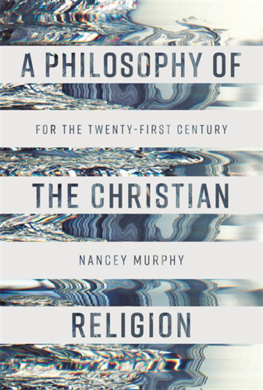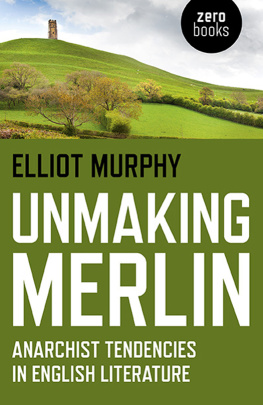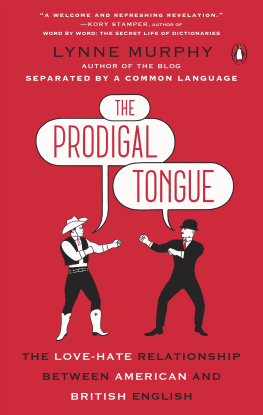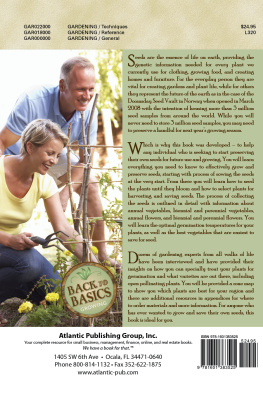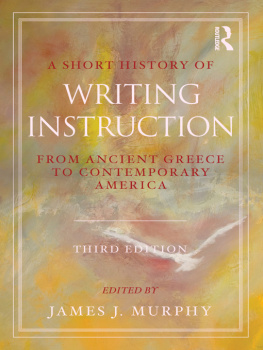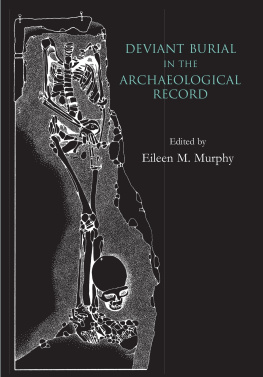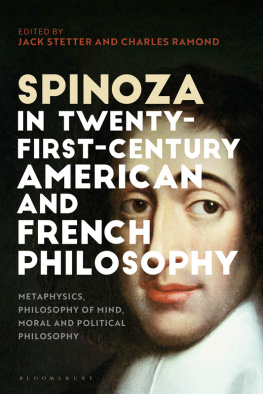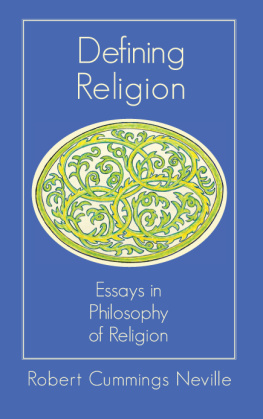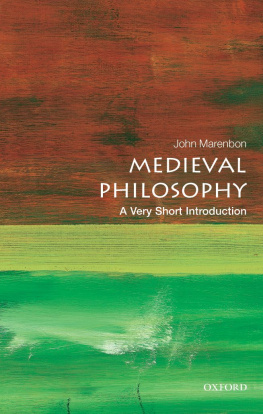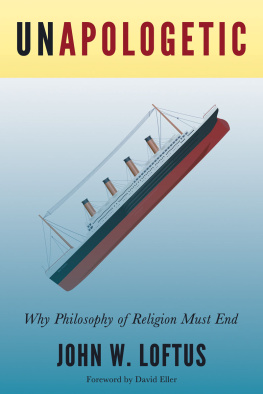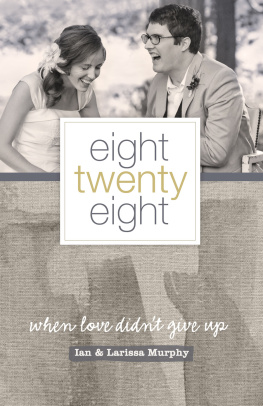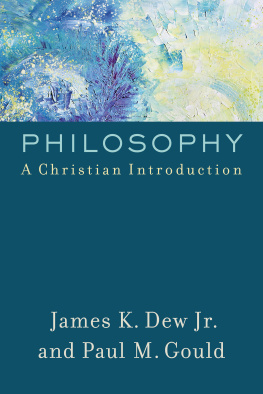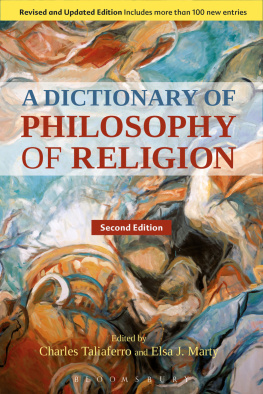Murphy - A philosophy of the Christian religion : for the twenty-first century
Here you can read online Murphy - A philosophy of the Christian religion : for the twenty-first century full text of the book (entire story) in english for free. Download pdf and epub, get meaning, cover and reviews about this ebook. year: 2018, publisher: Society for Promoting Christian Knowledge, genre: Religion. Description of the work, (preface) as well as reviews are available. Best literature library LitArk.com created for fans of good reading and offers a wide selection of genres:
Romance novel
Science fiction
Adventure
Detective
Science
History
Home and family
Prose
Art
Politics
Computer
Non-fiction
Religion
Business
Children
Humor
Choose a favorite category and find really read worthwhile books. Enjoy immersion in the world of imagination, feel the emotions of the characters or learn something new for yourself, make an fascinating discovery.
A philosophy of the Christian religion : for the twenty-first century: summary, description and annotation
We offer to read an annotation, description, summary or preface (depends on what the author of the book "A philosophy of the Christian religion : for the twenty-first century" wrote himself). If you haven't found the necessary information about the book — write in the comments, we will try to find it.
Murphy: author's other books
Who wrote A philosophy of the Christian religion : for the twenty-first century? Find out the surname, the name of the author of the book and a list of all author's works by series.
A philosophy of the Christian religion : for the twenty-first century — read online for free the complete book (whole text) full work
Below is the text of the book, divided by pages. System saving the place of the last page read, allows you to conveniently read the book "A philosophy of the Christian religion : for the twenty-first century" online for free, without having to search again every time where you left off. Put a bookmark, and you can go to the page where you finished reading at any time.
Font size:
Interval:
Bookmark:

Nancey Murphy, PhD, ThD, is Senior Professor of Christian Philosophy at Fuller Seminary in Pasadena, California. She is the author of nine books and the co-editor of twelve. Her first book, Theology in the Age of Scientific Reasoning (Cornell, 1990) won the American Academy of Religion Award for Excellence in 1992. Others include Beyond Liberalism and Fundamentalism: How Modern and Postmodern Philosophy Set the Theological Agenda (Trinity Press International, 1996); On the Moral Nature of the Universe: Theology, Cosmology, and Ethics (with G. F. R. Ellis, Fortress Press, 1996); Anglo- American Postmodernity: Philosophical Perspectives on Science, Religion, and Ethics (Westview Press, 1998); and Did My Neurons Make Me Do It? Philosophical and Neurobiological Perspectives on Moral Responsibility and Free Will (with W. S. Brown, Oxford University Press, 2009). Her co-edited books include four on divine action from the perspective of a variety of sciences; and Downward Causation and the Neurobiology of Free Will (with G. F. R. Ellis and T. OConnor, Springer, 2009).
First published in Great Britain in 2018
Society for Promoting Christian Knowledge
36 Causton Street
London SW1P 4ST
www.spck.org.uk
Copyright Nancey Murphy 2018
All rights reserved. No part of this book may be reproduced or transmitted in any form or by any means, electronic or mechanical, including photocopying, recording, or by any information storage and retrieval system, without permission in writing from the publisher.
SPCK does not necessarily endorse the individual views contained in its publications.
The author and publisher have made every effort to ensure that the external website and email addresses included in this book are correct and up to date at the time of going to press. The author and publisher are not responsible for the content, quality or continuing accessibility of the sites.
Scripture quotations marked nrsv are from the New Revised Standard Version of the Bible, copyright 1989 by the Division of Christian Education of the National Council of the Churches of Christ in the USA. Used by permission. All rights reserved.
Quotations marked rsv are from the Revised Standard Version of the Bible, copyright 1946, 1952 and 1971 by the Division of Christian Education of the National Council of the Churches of Christ in the USA. Used by permission. All rights reserved.
British Library Cataloguing- in - Publication Data
A catalogue record for this book is available from the British Library
ISBN 978 06692
eBook ISBN 978 06693
Typeset by Manila Typesetting Company
First printed in Great Britain by Ashford Colour Press
Subsequently digitally reprinted in Great Britain
eBook by Manila Typesetting Company
Produced on paper from sustainable forests
To my late husband, James Wm. McClendon, Jr.
And to so many who have taught me so much:
Warren S. Brown
George F. R. Ellis
Paul K. Feyerabend
Alasdair MacIntyre
Robert John Russell
Prefaces seem to serve a variety of purposes; this one is to express gratitude to the many people who helped to bring this book into being.
First are my students: most professors know that one can teach the same material either to a sullen and resistant class or to one whose students are predominantly interested and excited to learn. Nearly all of my classes for 25 years at Fuller Seminary were of the second sort. These students enthusiasm has always brought out the best in me.
Second, I thank Philip Law, Publishing Director at SPCK. I do not believe that it is possible to write a text on religion in general, nor do I have a gift for explaining philosophical concepts to undergraduates. However, he offered me a chance to write largely for Christian seminariansthe level at which I had (largely) been teaching. I realized that this was an opportunity to summarize the work I had been doing and to bring it up to date.
Third, Dr. Rima Devereux, Senior Project Editor and Commissioning Editor at SPCK, has provided advice and quick, patient answers to numerous questions.
I cannot give enough thanks to Viktor Toth, a PhD student in theology. Our collaboration began with his offering, as an experienced graphic designer, to provide professional renderings of the figures. This led to productive discussions about the character of the drawings based on his knowledge of the tradition. There were many smaller helps as well, as after I had spent two hours trying to make my new software do things, he would fix the problem in two seconds. Finally, he likes to make indices. After having done so many of them myself (inexpertly), I hope he will teach me his more efficient procedure.
There is a group of women who deserve my thanks. They have helped me raise my son Andre Fedan. I can only remember ones name: Gloria, because Andre could not pronounce it and called her Lola. A series of lovely women have also helped care for my home, giving me extra time to writeespecially Kimiko, Lydia, and Irma. They have been not only professional helpers but also friends over the years.
All of you have contributed and have made this book a possibility. To all of you, thank you!
Nancey Murphy
Altadena, CA
| Camb. Dict. | The Cambridge Dictionary of Philosophy , 2nd edition, ed. Robert Audi (Cambridge: Cambridge University Press, 2007); references in text are to 1st edition (1995). |
| Macmillan | The Encyclopedia of Philosophy , 8 vols., ed. Paul Edwards (London and New York: Macmillan, 1967); references in text are from 1972 reprint, two vols. per book. |
| Oxford Companion | The Oxford Companion to Christian Thought , ed. Adrian Hastings et al. (Oxford: Oxford University Press, 2000). |
| Routledge | Routledge Encyclopedia of Philosophy , 10 vols., ed. Edward Craig (London: Routledge, 1998). |
| Stanford | Stanford Encyclopedia of Philosophy , ed. Edward N. Zalta. Available at https://plato.stanford.edu/. |
The title of this book, A Philosophy of the Christian Religion for the Twenty- first Century, is meant to signal two things: First, that there are good reasons, now, for recognizing the impossibility of writing a single book about religion in general. Second, that there have been some significant changes in philosophical conceptions over time. These can make problems that may, on the surface, appear to have been the same over centuries turn out, in fact, to be quite different in our own day.
Previously, and even in many cases today, typical texts in philosophy of religion begin with definitions of religion, of philosophy, and of philosophy of religion. However, an important change has occurred in the study of religion. There have been attempts beginning two centuries ago to provide a definition of religion. The question has been asked: What are the essential features that all religions share, and that distinguish them from other aspects of culture? And if scholars disagree about these essential features, how could they go about settling their disagreements? So, more recently, the quest has been abandoned because these questions have been debated by great scholars for generations and no satisfactory conclusions have been reached.
Philosopher Ludwig Wittgenstein (1889 1951) has provided a helpful way of understanding many of our important concepts: they apply not to sets of things that all have the same essential features, but rather to sets of things that resemble one another in the way members of families usually do. He calls the latter family concepts, and this is quite relevant to the problem of defining religion. As David Stewart (b.1938) writes:
Font size:
Interval:
Bookmark:
Similar books «A philosophy of the Christian religion : for the twenty-first century»
Look at similar books to A philosophy of the Christian religion : for the twenty-first century. We have selected literature similar in name and meaning in the hope of providing readers with more options to find new, interesting, not yet read works.
Discussion, reviews of the book A philosophy of the Christian religion : for the twenty-first century and just readers' own opinions. Leave your comments, write what you think about the work, its meaning or the main characters. Specify what exactly you liked and what you didn't like, and why you think so.

